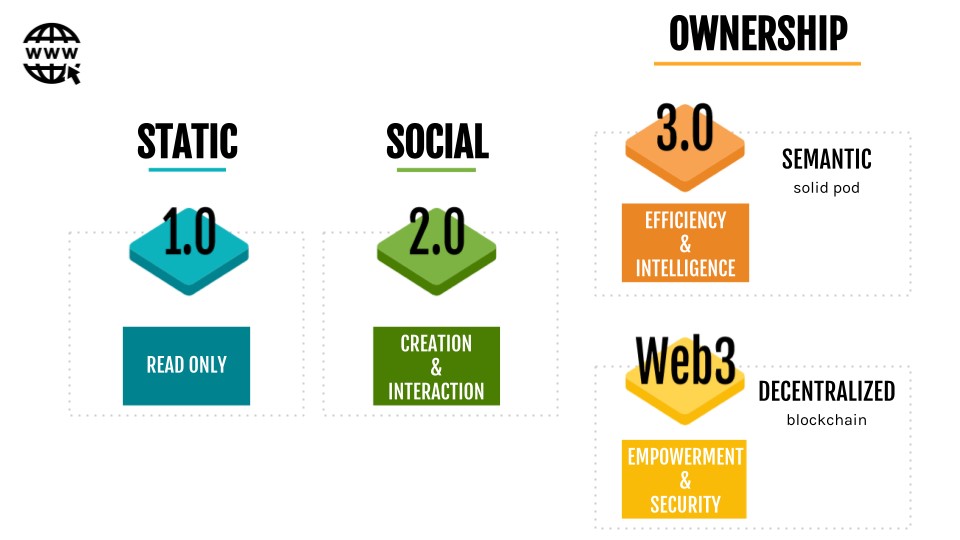분류 [Engineering/Technology] Incheon National University Researchers Propose a Web 3.0 Streaming Architecture and Marketplace
- NO
- 380891
- Date
- 2024-01-25
- Modify Date
- 2024-02-22
- Writer
- 연구기획관리과 (032-835-9322~5)
- Count
- 3324
Incheon National University Researchers Propose a Web 3.0 Streaming Architecture and Marketplace
The proposed marketplace, named “Retriever,” reduces delay, improves user experience, and is transparent and fair for real-time Web 3.0 services
Web 3.0 is a blockchain technology-based internet paradigm that is transparent and decentralized. But, Web 3.0 streaming services require modifications to the existing service structure due to certain technical issues. Now, researchers form Incheon National University propose “Retriever,” an Inter-Planetary File System (IPFS) based Web 3.0 technology and non-fungible token marketplace. The proposed marketplace reduces service delay and improves user experience by deploying their own IPFS nodes and controlling the blockchain.

Title: World Wide Web Internet Paradigms
Caption: Research now propose a marketplace for Web 3.0, an internet paradigm based on blockchain technology, which provides advantages such as transparency, decentralized control structures, user privacy, and fairness.
Credit: technovore on openverse https://openverse.org/en-gb/image/b1e17f95-8563-4edb-9d61-1de13b09cce7
License type: CC BY-NC-SA 2.0
Web 3.0 is an internet paradigm that is based around blockchain technology, an advanced database mechanism. Compared to Web 2.0, the current internet paradigm, Web 3.0 provides some added advantages, such as transparency and decentralized control structures. This is because Web 3.0 is designed to work over trustless and permissionless networks. Unfortunately, owing to certain technical difficulties, the implementation of Web 3.0 media streaming requires modifications to the service architecture of existing media streaming services. These difficulties include the degradation of user experience and Web 3.0’s incompatibility with certain operating softwares and browsers.
To address these issues, a team of researchers, led by Assistant Professor Gi Seok Park from Incheon National University undertook a novel project. Their findings were made available on 22 August 2023 and recently published in Volume 16, Issue 6 of the journal IEEE Transactions on Services Computing in November-December 2023. In this study, the researchers proposed an end-to-end system architecture that is specifically designed for Web 3.0 streaming services. They made use of Inter-Planetary file system (IPFS), a type of Web 3.0 peer-to-peer (P2P) data storage technology, to reduce service delays and improve user experience.
Web 3.0 services have also been implemented using the application programming interfaces of third-party service providers called IPFS pinning service. Unfortunately, they limit performance. Taking this into consideration, the team designed a system in which they were able to fully control the blockchain nodes by deploying their own IPFS nodes that ran directly on their system. They also implemented new protocols that cached content and scheduled chunks on their IPFS nodes, which enabled the nodes to collaborate with each other and quickly download data.
The researchers found that their proposed system was compatible with IPFS nodes and still ran on IPFS P2P networks. They also launched Retriever (https://retriever.live), a media non-fungible token (NFT) marketplace that was developed using Web 3.0 technologies. Retriever allowed users to watch video content, ensure data privacy, and was found to be compatible with multiple mobile devices. “Our service can allow creators to monetize their video content and even sell their video content if they wish to. This is because each content will now be managed as an NFT. More importantly, this entire process will be fair and transparent,” says Dr. Park, while speaking about Retriever.
When asked about the real-life implications of this study, Dr. Park explains, “ Our proposed service would establish digital trust from users. Moreover, thanks to blockchain technology, web services will no longer need to force trust on users in the future. All transactions will be made fairly through smart contracts and recorded transparently through the blockchain ledger.”
We are certainly hopeful about the successful establishment of Retriever and the expansion of Web 3.0 services in the future!
Reference
|
Authors: |
Ryeong Hawn Kim1, Hwangjun Song2, and Gi Seok Park1,* |
|
Title of original paper: |
Moving Real-Time Services to Web 3.0: Challenges and Opportunities |
|
Journal: |
IEEE Transactions on Services Computing |
|
DOI: |
|
|
Affiliations: |
1Department of Computer Science and Engineering, Incheon National University 2Department of Computer Science and Engineering, POSTECH |
*Corresponding author’s email: gspark@inu.ac.kr
About Incheon National University
Incheon National University (INU) is a comprehensive, student-focused university. It was founded in 1979 and given university status in 1988. One of the largest universities in South Korea, it houses nearly 14,000 students and 500 faculty members. In 2010, INU merged with Incheon City College to expand capacity and open more curricula. With its commitment to academic excellence and an unrelenting devotion to innovative research, INU offers its students real-world internship experiences. INU not only focuses on studying and learning but also strives to provide a supportive environment for students to follow their passion, grow, and, as their slogan says, be INspired.
Website: https://www.inu.ac.kr/sites/inuengl/index.do?epTicket=INV
About the author
Gi Seok Park is an Assistant Professor in Department of Computer Science and Engineering at Incheon National University (INU), Korea. Prior to joining INU, he was an Assistant Professor at Dongguk University, Korea from 2019 to 2023. He worked at Samsung Electronics as a Senior Engineer, Korea from 2018 to 2019. He received his Ph.D. degree from Dept. of IT Convergence Engineering at POSTECH, Korea in 2018.